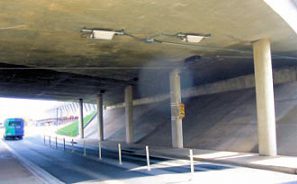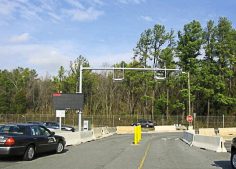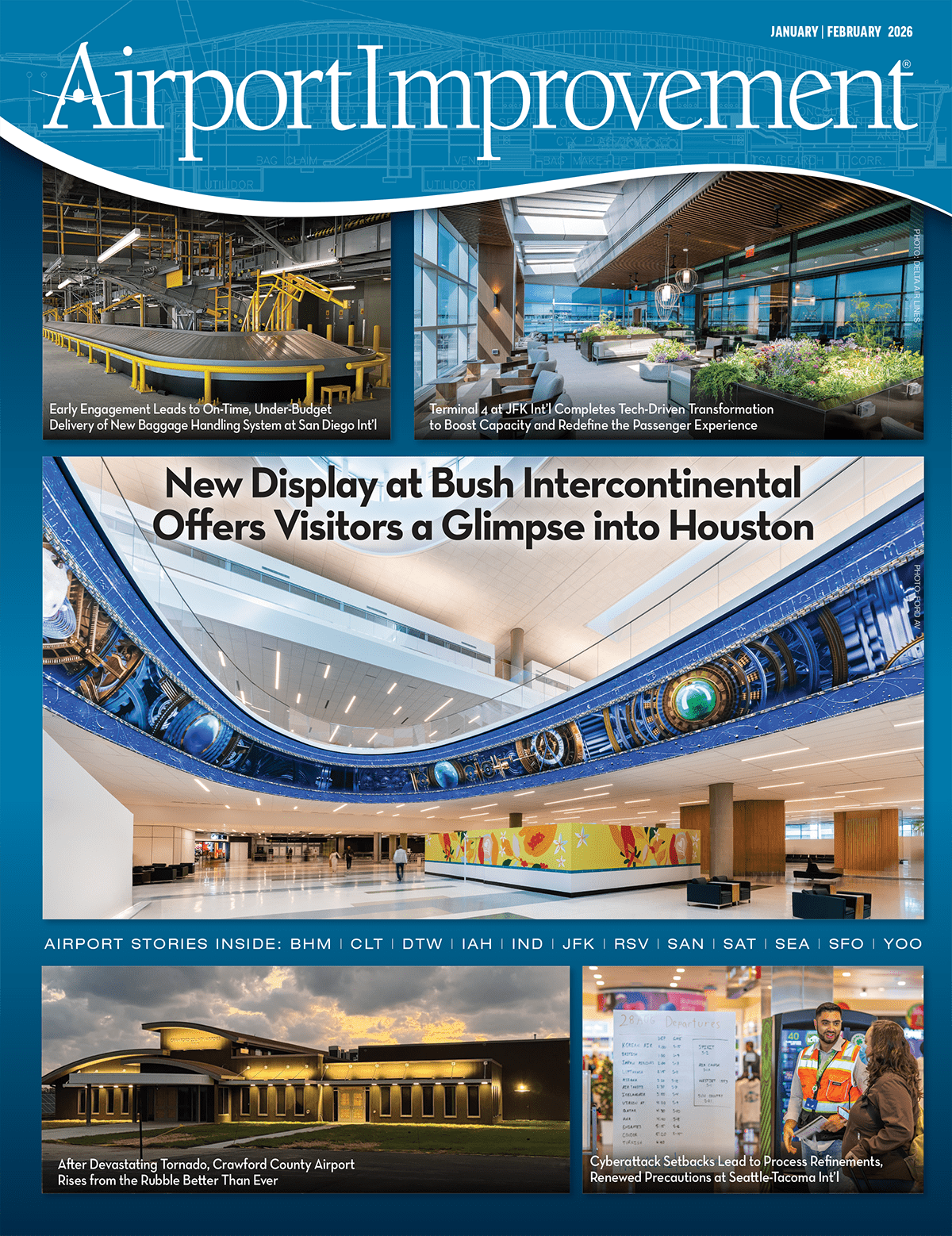Insprired by improvements to taxi operations at Ronald Reagan Washington National Airport, the
|
|
|
Dulles International Airport |
Metropolitan Washington Airport Authority (MWAA) applied similar technology down the pike at Washington Dulles International Airport (IAD) last spring.
An automatic vehicle identification (AVI) system has allowed taxis to operate at Reagan National with less paperwork and more ease since 2003. Entries and exits to the taxi hold area are used to queue vehicles and collect trip fees via approximately 3,000 radio frequency identification (RFID) transponders that track both drivers and payments.
The same team of contractors, TransCore and GateKeeper, supplied a similar system at Dulles to replace its dated manual system of paper tickets and walkie-talkies. The low-tech sequential dispatch queue often resulted in too few or too many cabs on hand, which frustrated passengers and drivers alike. Equity was also an issue, with some drivers sitting in the hold lot for hours on end.
|
Facts and Figures Project: Commercial Vehicle Management Airport: Dulles International Airport Method: Automatic Vehicle Identification (AVI) Technology: TransCore Software: GateKeeper Systems Dynamic Signage: Daktronics Outside Consultants: IBI Group and Ricondo and Associates Request for Proposal: January 2007 Contract Awarded: March 2007 Project Completed: June 2008 Contract Value: $1,787,698 |
"Dulles wanted to get their curbside under control and start charging for commercial vehicles," notes Forrest Swonsen, director of Airport Systems and Services at TransCore. "We started working with them three years ago to come up with a system design mindful of the things we learned at Reagan."
Site Specific
Differences between the physical layouts of the two airports and the number and type of companies running curbside operations necessitated a slightly different approach at Dulles. Compared to the dense and compact facilities at Reagan National, Dulles' grounds are sprawling, with a full 11/2 miles between its terminal building and hold lot. AVI technology has seemingly closed the gap that previously left some customers impatient and sometimes cold as they waited for a cab.
It also allowed the airport authority to register, track and monitor ground transportation activity at the commercial vehicle curb.
The TransCore/GateKeeper team designed, fabricated, installed, integrated and tested the AVI system at Dulles and GateKeeper provided the software. Outside consultants IBI Group and Ricondo and Associates assisted in design, implementation and testing.
The system at Dulles includes eight reader locations with 10 TransCore reader systems. It reads TransCore's RFID sticker tags as well as "Smart Tag" toll transponders from the Virginia Department of Transportation.
In addition to the AVI equipment, the system utilizes Daktronics variable messaging signage to communicate to the taxis in the hold lot and wireless handheld computers at the curbside for vehicle tracking an
 |
 |
d compliance management.
A Big Change
After nearly a full year of operation at Dulles, the airport authority has realized a number of benefits from the new AVI and commercial vehicle management systems. MWAA general business analyst William S. Lanham characterizes the systems as "extremely useful to gain better control of commercial vehicle operations."
Specifically, Dulles has improved tracking of commercial vehicles and revenue control while reducing wait times for passengers and taxi drivers. The remote monitoring of operations and greater ease of dispatching have proven to be significant advantages.
Lynn Richardson, president of GateKeeper Systems, characterizes Dulles' change from manual to an RFID automated dispatch system as "fairly comprehensive."
"Phase 1 was aimed primarily at changing the way Dulles automated its taxi program," explains Richardson. "Now they are using it to not only dispatch taxis, but to manage their entire commercial vehicle fleet with regulatory compliance, billing and tracking of operations."



